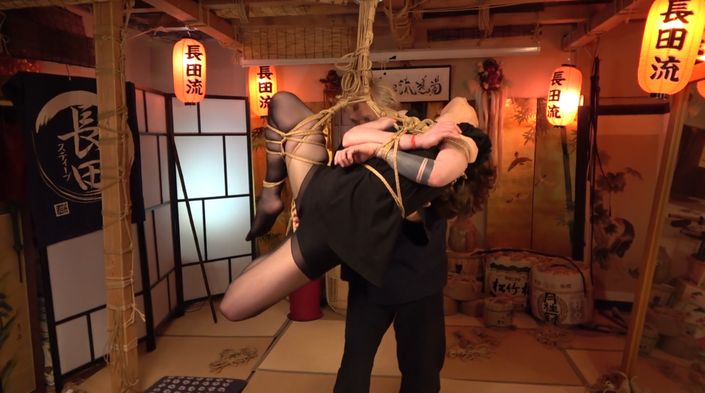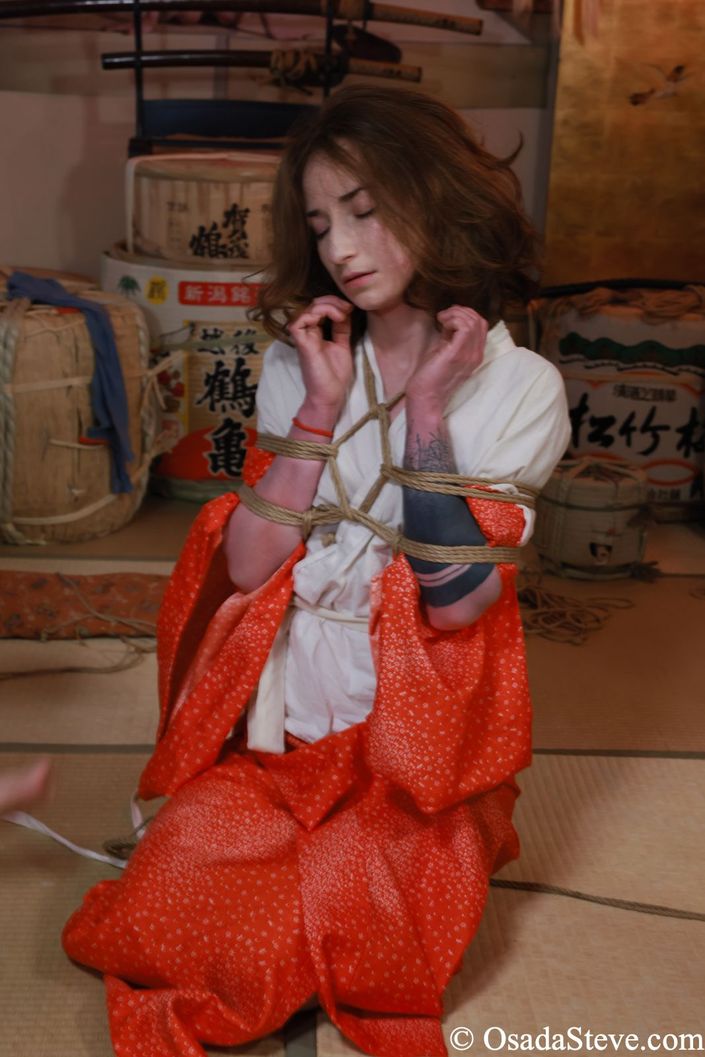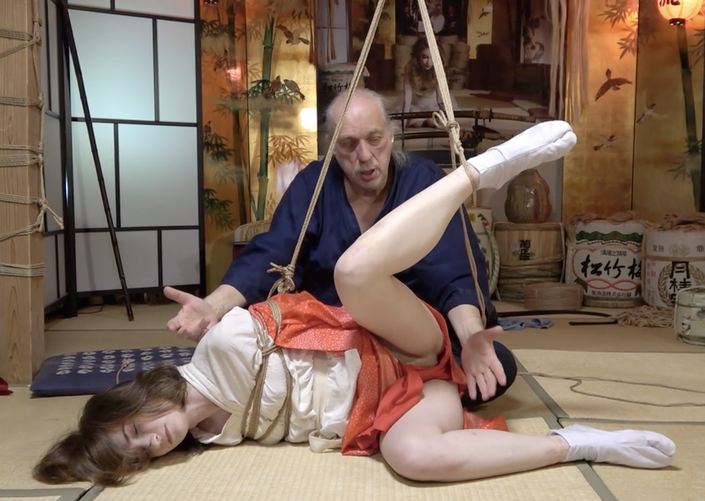
Choker Ties
When playing with rope the sound and sane advice is to stay away from the neck! What you are about to learn in this course therefore falls into the "do not try at home" category.
Some rope partners love to be choked, for others it's a hard limit.
If you wish to practice the kubikazenawa (首風縄) do so responsibly. Come prepared with a safe exit strategy and keep cutting tools at hand.
Whatever your skill level be aware of the risks involved. Always treat your rope partner with respect and do not take their trust for granted.
What This Course Entails
Learn how to deal with aerial challenges while at the same time keeping your feet firmly on the ground.
Enjoy the hojojutsu-inspired ties and watch the connective (play) exercises.
Enter the secret world of a members-only Tokyo SM Club by watching a vintage (2003) tanuki suspension performance by a youthful Osada Steve.
You will be plentifully rewarded with inspiration.
Teaser Clip

Raccoon Suspension
The infamous tanuki suspension (tanukizuri, 狸吊り) used to be quite popular in the early 2000's until it was replaced by another tie introduced by me to the West: the futomomo-zuri (太腿吊り).
.

One-rope Teppo
For extra points in the aesthetics department the elbow of the upwards-facing arm should be facing straight up. To achieve this, the shoulder should be properly rotated with the upper arm (takate, 高手) nestling behind the head.
.

Double Kikkou
The use of rope for combat was one of the 18 warrior skills (bugei juhappan, 武芸十八般) of the samurai.
The hojojutsu/捕縄術-inspired ties that are part of the Osada-ryu curriculum are meant to offer a tiny glimpse in history.
Serious students are recommended to take a look at the bible of torinawajutsu by
Fujita Seiko/藤田西湖,
available at the
Kinbaku Shop.
.
The Curriculum
190+ minutes
Choker, single-feet tie, one-rope teppo
Available in
days
days
after you enroll
Tanuki suspension
Available in
days
days
after you enroll
Hojojutsu-inspired ties
Available in
days
days
after you enroll
For Further Perambulating
This is an invitation to gallivant and peruse other exciting offerings.






